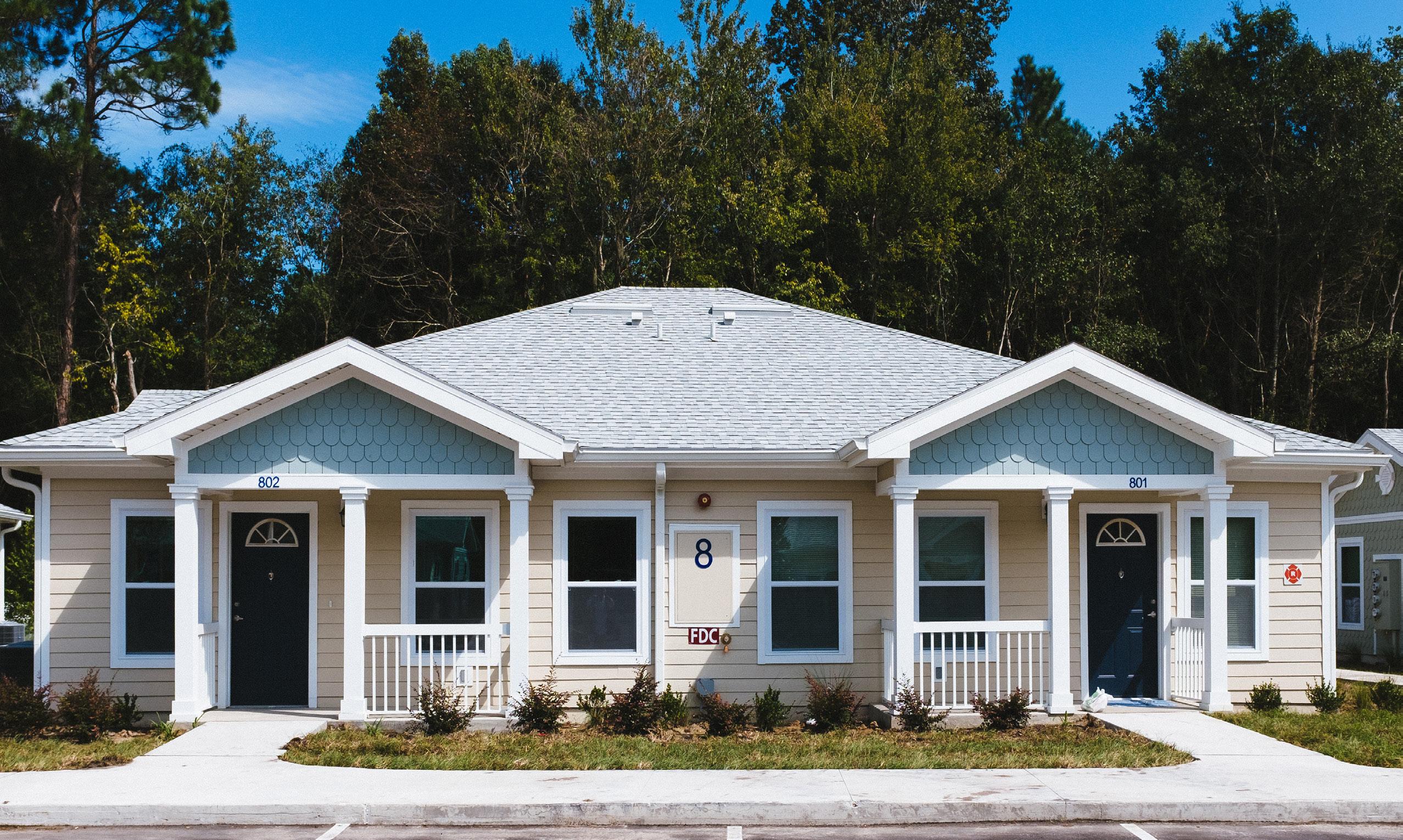APPENDIX A: HOUSING TABLESTABILIZATION: OF CONTENTS A FRAMEWORK TO In the literature, “housing stability” is often referred to as a finite set of activities to help a new resident stabilize in their home. Housing stability is typically discussed as a best practice to support chronically homeless veterans or others who may not be familiar with how to settle into a new home after living on the streets. “Tenancy supports” are those actions taken to promote housing stability. Through work on this pilot, Florida Housing concludes that housing stability should be thought of as a broader, overarching framework to encourage success for chronically homeless persons moving into supportive housing. The objective of housing stability is to help residents both obtain and maintain permanent homes. To succeed with this deceptively simple objective, however, requires a range of partners (and funding) working hand in hand across a spectrum of housing and community-based services. For a person to maintain true stability in their housing, they must not only understand the basics of keeping house, their personal lives must also be stable, with whatever behavioral and other supports are needed to help them achieve this. Therefore, Florida Housing believes a housing stability approach should include tenancy supports, traditional community-based supportive services and additional critical supports when working with residents with high needs (in addition to housing). To ensure that these services are provided within an integrated framework, we believe there are key clinical tenets that should be implemented to support these residents. Underlying this entire approach is the notion that these services are resident-centered – that is, the residents being served are equal partners in planning, developing and monitoring these supports and services to help make sure they meet their needs. These services should also be voluntary. A resident that is in compliance with the lease for their rental housing should not be at risk for not participating in services. But services must always be available and offered to residents so when they are at risk of violating their lease, they have the supports necessary to maintain their housing. The pilot sites found that the control residents have of their participation in services is an important part of the services being person-centered.
in, tenancy supports must begin immediately with an initial needs assessment and development of a Housing Stability Plan within the first 30 days of residency. Tenancy supports generally include: • Early identification and intervention for behaviors that may jeopardize housing. • Education about resident and landlord rights and responsibilities. • Eviction prevention planning and coordination. • Coaching on developing/maintaining relationships with landlords/property managers. • Assistance resolving disputes with landlords and/or neighbors. • Advocacy/linkage with community resources to prevent eviction. • Training on independent living skills, such as cleaning, laundry, shopping, household budgeting and management, financial literacy, including credit repair. • Assistance with housing recertification process. • Review/modification of housing support plan and eviction prevention plan with resident. • Role modeling in such areas as apartment community living, communication with neighbors, sober fun. • Home visiting. Traditional Supportive Services • Assistance with completing SOAR applications, support to obtain (or reinstate) all eligible entitlement benefits, such as Social Security, VA benefits and food stamps and SOAR case management. • Referrals to needed services such as mental health, substance use treatment and recovery support, medical and preventive health care and other wellness services.
This appendix provides a list of common tenancy supports, a list of traditional and more intensive supportive services provided to residents in supportive housing and key tenets in the clinical housing stability framework.
• Referrals and information about community services such as places of worship, community centers, food pantries, community-based support groups such as NA/AA, and other groups specific to areas of interest.
Tenancy Supports
• Employment services to increase financial independence and increase opportunities for employment.
Housing stability work generally begins prior to leasing to assist with eligibility requirements for the housing and prepare people for moving in. No matter what other services are provided at move-
• Education support services with the focus on completing degree or diploma technical or language skills.
32
Findings of the Florida High Needs High Cost Pilot








